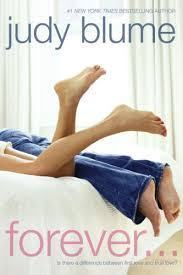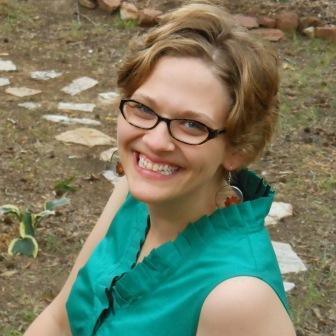Banned Books Month: Guest Post from Jen McConnel: I Read Banned Books
My name is Jen, and I read banned books.

Simon Pulse, Reissue Edition, April 2007.
There are so many amazing banned and challenged books which have made an impact on me, but today I want to share a particular story. It centers on Judy Blume’s novel FOREVER, my girlfriends, and my mom’s sock drawer.
Long before my friends or I had managed to snag boyfriends, we were fascinated by love and (gulp) sex. Because our magazines told us to, we spent hours discussing the things we thought would make a relationship worthwhile, and we spoke in whispers about French kissing, foreplay, and birth control without really knowing what we were saying.
And then, in 8th grade, one of my friends stole a little book from her older sister, and everything changed.
When FOREVER first surfaced in my life, it was a battered copy that had already made the rounds of another set of teenage girls a few years before. Luckily, my friend’s sister had kept her copy, even as she went from book knowledge to practical application, and my friend had no qualms about swiping the book. We read it one at a time, and fast, passing it on to the next girl after attempting to memorize the steamy scenes, and at our next slumber party, we had lots to discuss. The book gave us a window to adulthood that we hadn’t found in our bright pink magazines, and the story of first love and first sexual encounters answered far more questions for us than we’d even known to ask in our small, rural Midwestern town.
We must have read that book from cover to cover a hundred times, trying to glean more wisdom, and attempting to puzzle out some of the sexual descriptions we still didn’t entirely understand. FOREVER probably would have remained our cherished handbook for years if I hadn’t blown our cover.
I’d always had a good relationship with my mom growing up (still do, thankfully), and I finally asked her about some of the things I’d read about in Blume’s novel. She didn’t react well to her young daughter asking her to define sexual slang, and she pressed me to tell her where I’d learned those things. The story of the novel tumbled out, and my mom immediately demanded that I surrender the copy. It didn’t occur to me to lie about having the book, although I tried to point out that the book wasn’t actually mine, but she didn’t care. She took it and forbid me from reading it, and she buried the novel in her sock drawer.
It remained there throughout high school, and whenever she wasn’t home, I snuck into her room to re-read the juicy passages, puzzling out the things that had confused me when I was younger. Later on, in college, I had the chance to buy a new copy of the book for a literature class, and re-reading it, I realized how much more was actually going on in the novel besides sex. Women’s rights, sexual identity, and suicide are all addressed in this slender novel, and the book is as resonant today as when it was first written in the 1970s.
Now, I don’t want you to get the wrong idea about my mom after hearing this story. She’s a pretty open-minded person, and this was the only time in my life she’d ever told me not to read something. But her reaction underscores the importance of banned and challenged books: often, these books broach topics that people aren’t comfortable discussing. Even if the world around us doesn’t want to have a dialogue about sexual choices, books like FOREVER offer readers the chance to explore, question, and develop their own opinions about sexuality. Blume presents a safe, consensual sexual relationship in emotional and physical detail, and that’s something more teens need to be exposed to before they begin experimenting and discovering their own turn-ons.
Maybe, if we talked more about the tough subject they wouldn’t be so troubling, and maybe if we were more open with girls (and boys) about sexuality as they grow up, there wouldn’t be so many traumatic sexual experiences lurking in our memories. I’m just guessing, but banned and challenged books offer dialogue and inquiry into the tough topics, and that’s important for readers of all ages.

Jen McConnel.
Jen McConnel first began writing poetry as a child. Since then, her words have appeared in a variety of magazines and journals, including Sagewoman, PanGaia, and The Storyteller (where she won the people’s choice 3rd place award for her poem, “Luna”).
She is also a former reviewer for Voices of Youth Advocates (VOYA), and proud member of SCBWI, NCWN, and SCWW.
A Michigander by birth, she now lives and writes in the beautiful state of North Carolina. When she isn’t crafting worlds of fiction, she teaches writing composition at a community college. Once upon a time, she was a middle school teacher, a librarian, and a bookseller, but those are stories for another time.
Connect with Jen on Twitter @Jen_McConnel, and visit her website to learn more. http://www.jenmcconnel.com/








